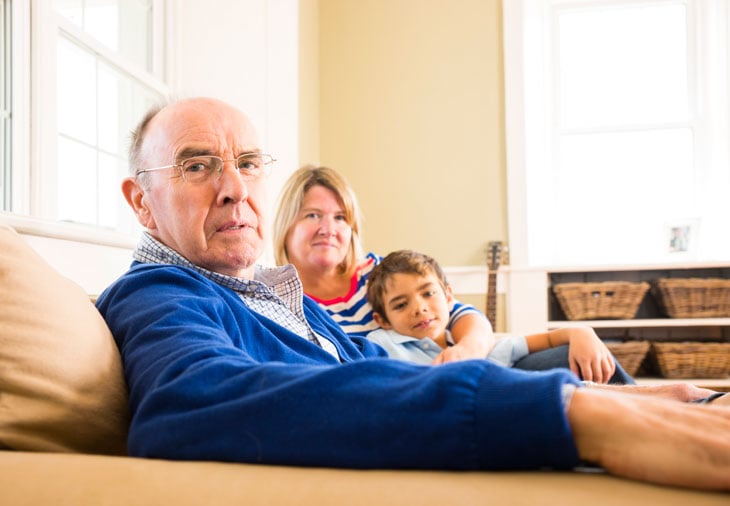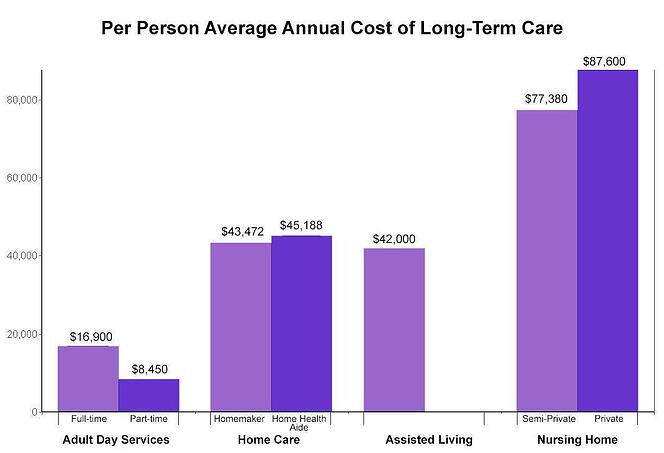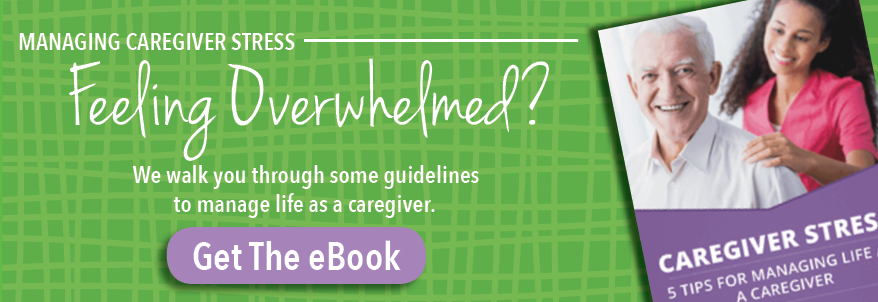
The Sandwich Generation: Caring for Everyone, but Who’s Caring for Them?
Health & Aging | Caregiver Support
One in seven middle-aged adults are part of what we’ve frequently begun to call the “Sandwich Generation.” It’s a term that was first coined in 1981 by social worker Dorothy A. Miller and originally meant to describe women in their thirties and forties caring for their young children and aging parents. Fast forward some 34 years and 71% of those sandwiched between their parents and children fall between the ages of 40 and 59—consisting of both men and women caregivers.
 Today, there are roughly 65.7 million caregivers in the world. As life expectancy increases, so will the number of people finding themselves in this balancing act of caring for both parent and child. Much as the stress of offsetting one’s time between two very different groups of people can be overwhelming, the financial strain alone can be too much to handle—or one may think.
Today, there are roughly 65.7 million caregivers in the world. As life expectancy increases, so will the number of people finding themselves in this balancing act of caring for both parent and child. Much as the stress of offsetting one’s time between two very different groups of people can be overwhelming, the financial strain alone can be too much to handle—or one may think.
If you’re like many of today’s working class trying hard to make ends meet, working one or even two jobs, juggling a mortgage payment, paying rent, car loans, medical bills, childcare expenses, college loans, grocery expenses, and credit card debt, you’re probably at your wit's end. Fortunately, you don’t have to go it alone. While the availability of caregiver resources may seem bleak, it’s quite the opposite.
Know Your Options
Growing options in senior care open the doors of possibilities for caregiver and caregivee alike. Placing a loved one in a nursing home may not always be the most economical or viable choice. In most cases, it can cost up to 9 times more than other long-term care options. The chart below gives an at-a-glance comparison of the average annual cost, per person, for long-term care.

Programs like adult day services help your loved one remain independent, active, and social. Studies reveal it’s the most effective and economical form of health care. No longer do you have to worry about leaving your loved one home unattended. Participation in an adult day program offers a social, safe, and stimulating atmosphere for those dearest to you. The benefits are endless and in most cases, include on-site delivery of some medical services.
The Effects of Caregiver Stress
 In a recent study, researchers from Pennsylvania State University recruited a sample of 180 family caregivers and found that after 9 consecutive days of loved ones participating in adult day services, caregivers exemplified a 66% reduction in their stress levels. One might ascertain that this is due in part to caregivers having more time to focus on their individual needs.
In a recent study, researchers from Pennsylvania State University recruited a sample of 180 family caregivers and found that after 9 consecutive days of loved ones participating in adult day services, caregivers exemplified a 66% reduction in their stress levels. One might ascertain that this is due in part to caregivers having more time to focus on their individual needs.
Caregiver stress is known to be a catalyst for other health related complications. It affects emotional and physical well-being—leading to depression and feelings of inadequacy. Additionally, chronic exposure to stress has been recorded to have an adverse affect on the immune system. Whenever your caregiving responsibilities involve caring for an elder parent, child, work, and other family obligations, your health is of the utmost importance. Caregivers, it’s time to start putting yourself first. This is the only way you’ll be able to effectively meet the demands of your role.
Know the Warning Signs
Some of the warning signs of stress include lapses in memory, an inability to focus and concentrate, moodiness, short temper, worrying, racing thoughts, loss of appetite, and neglect. These signs and symptoms affect productivity. As a caregiver, that’s the last thing you need. If you’re finding yourself spiraling down this road, know that there are options.
- Enlist the help of other family members.
- Seek out other caregivers for emotional support.
- Slow down so you can recharge.
- Seek professional counseling to help you cope with the emotional toll.
- Create a list, organize, and plan your week.
Still having a difficult time balancing it all, even after incorporating some of the above options into your routine? Try adult day services. Programs like this offer guidance and support for your journey. Don’t become a victim to the sandwich generation. Start caring for yourself so you can more effectively show love and care to those who need you the most.
For more information on how to manage caregiver stress, download our eBook below!



